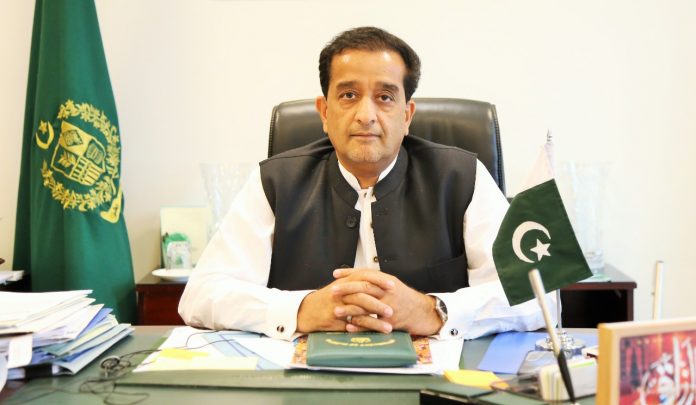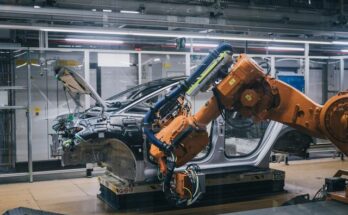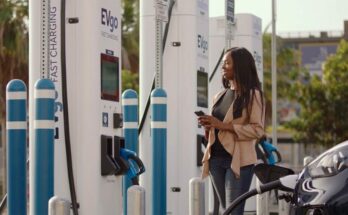There is an incessant tussle going on between the two ministries on the national electric vehicle policy.
Related: EV Policy- Tug of War Between 2 Ministries
Ministry of Climate Change (MoCC) spearheaded by Advisor to PM on Climate Change Malik Amin Aslam, was swiftly working on formulating country’s first-ever electric vehicle (EV) policy however from day 1 it faced resistance from the Ministry of Industries and Production (MoIP) and its connected department the Engineering Development Board (EDB).
In November 2019, the Federal Cabinet unanimously approved the EV Policy and indicated that the policy will be implemented in its full spirit by January 2020. However Local auto assemblers and their associated stakeholders showed serious concerns and termed the approval of the EV policy an “ad hoc decision”.
Later in January 2020, a report surfaced that despite the EV policy getting approval from Federal Cabinet, the policy will now be redrafted and implemented by MoIP through its attached department EDB. Adviser to Prime Minister on Industries & Production, Commerce, Textile and Investment Abdul Razak Dawood said that the MoIP would be the only authority to deal with the policy. According to sources, he also expressed displeasure over the way the policy was approved by the cabinet because he was abroad when the meeting had taken place. As per this development the policy redraft will be prepared by the EBD to be shared within a month time frame.
Related: Low Localization and the Need to Shift to EVs
Now the electric vehicle stakeholders have lambasted the new electric vehicle policy draft citing that it will create hurdles for EVs instead of paving way for their introduction in Pakistan. They have also termed it an attempt to discourage investors from shifting to environmentally friendly technology. According to Pakistan Electric Vehicles and Parts Manufacturers and Traders Association (PEVPMTA) General Secretary Shaukat Qureshi:
“In the new draft, the existing players have gotten all those incentives removed which were earlier offered by the Ministry of Climate Change to invite investors to introduce electrical vehicles in Pakistan. The players who have enjoyed their hold on Pakistan’s auto sector for decades are not willing to let any other player enter the market because they will face competition and have to innovate which they are not willing to do.”
In the earlier approved policy, imposition of 1% customs duty was suggested for import of electric vehicles and 1% sales tax was proposed for electric vehicle manufacturing in Pakistan. Apart from this, the government offered interest free loans as well to prospective players in the electric vehicle segment. Commenting on this, the Chairman of Association of Pakistan Motorcycle Assemblers (APMA) Muhammad Sabir Shaikh said:
“The existing companies, all of which are Japanese, want to alter the policy according to the present trend of running the automobile market in an oligarch way.”
He pointed out that the world had made drastic progress in the electric vehicle segment and Pakistan need to catch up quickly, which was only possible by offering incentives to electrical vehicle makers. The official pointed out that Pakistan has a golden 3-4 year window and if we use it, by 2023 Pakistan can be a leading producer of right-hand drive EVs. Otherwise if the time lapsed in just deciding the incentives package and policy domain then Pakistan will lose this opportunity and some other country will benefit through it. Like the internal combustion engine vehicles, Pakistan will then become an importer of EVs only.
Related: Construction Work of Bangladesh’s First Electric Vehicle Plant Begins
It is pertinent to mention that Thailand, which is already considered a regional hub for producing automobiles, has recently announced its EV policy and aims to become a regional hub of electric vehicles within the next 5 years.
According to Thailand’s Industry Minister Suriya Jungrungreangkit, by 2030 the country would produce at least 750,000 electric vehicles a year, constituting 30% of its total automobile manufacturing capacity. He said that there should be 53,000 electric motorcycle taxis in two years and 5,000 electric buses in five years.

A computer animation professional with over 23 years of industry experience having served in leading organizations, TV channels & production facilities in Pakistan. An avid car enthusiast and petrolhead with an affection to deliver quality content to help shape opinions. Formerly written for PakWheels as well as major publications including Dawn. Founder of CarSpiritPK.com






